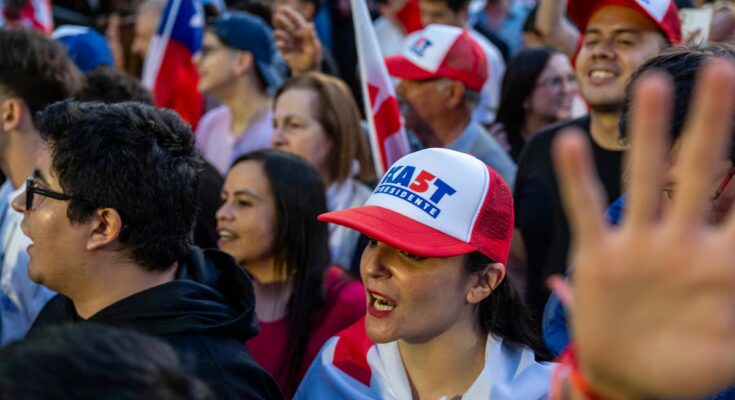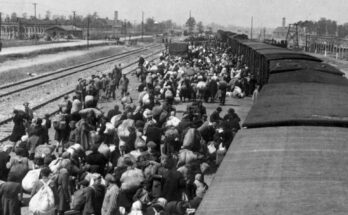The presidential elections this Sunday, November 16, in Chile announce the reconfiguration of the political forces and raise the question that has also been heard in other latitudes: has the country gone to the right? The candidate of the governing party, Jeannette Jara, a member of the Communist Party, obtained a vote lower than that estimated by her own leaders as the minimum limit, with 26.76%, which makes it very difficult to think that she can achieve an absolute majority in the runoff. President Gabriel Boric made every effort to maintain the unity of the left-wing parties, to an even greater extent than that of Popular Unity which managed to elect Salvador Allende in 1970 (at the time, without a ballot). He understood this, but this also means that there are no more votes available outside the coalition.
Worse still, Jara gained a slim margin of advantage over the main right-wing candidate, José Antonio Kast (24.05%). The three right-wing candidates collect, adding only their votes, around 51% of voter registration.
Jara’s weak result expresses the double roof of his party and the left coalition, which remained united, but without growing: a stagnant coalition, a phenomenon for which a diagnosis and a solution were lacking. But it is also a judgment on the management of Gabriel Boric’s government, which is approaching the end of its four-year mandate (in March) with poor economic, social and security results. Confident in the apparent escape of the so-called “social explosion” of 2019, Boric governed on the basis of a series of assumptions that quickly proved incorrect and whose subsequent correction – which some considered a profound social democratic turn – was not only incomplete, but left the economy on the brink of a ruinous state, supported only by the strength of its institutions, in particular the Central Bank and the Fiscal Council, both of which are autonomous.
The administration led by the young and immature Frente Amplio was worse than that of the equally fleeting Nueva Mayoría (2014-2018) which supported Michelle Bachelet’s second government and, thus, paved the way for a spectacular rise in right-wing achievements. It is almost impossible to find officials outside the government in Chile. Nonetheless, Jara’s electoral performance was lower than the average consensus (30-32%) that President Boric records every week. So Jara might say that his results might have been worse if he had not decisively distanced himself from the government, and Boric might say that he did so precisely because he distanced himself from the government. Tables.
Jara won as a candidate in the primaries in which she resoundingly defeated democratic socialism. The right, however, transformed yesterday’s elections into its primaries, with three candidates who together cover the entire space of the right in the world. Kast, who ran in 2021 and won in the first round against Gabriel Boric, was considered the extreme figure, until the emergence of another tougher and more provocative politician, Johannes Kaiser, left him in a rare intermediate position. Yesterday Kast largely overtook Kaiser and liquidated the aspirations of the center-right, whose candidate Evelyn Matthei only came in fifth place.
The current cycle of the left has reached a provisional conclusion, corroborated by the victory of the right in the Chamber of Deputies and the Senate, for the first time in history; and it is not yet known whether these were temporary slips or underground rivers that were only seeking the pretext of bad governance to emerge to the surface.
For now, the government elected in the December 14 runoff will face major difficulties from the start. The 2026 budget is in deficit and various studies agree that the fiscal balance cannot be restored before 2030, provided strong spending controls are applied. There is persistent unemployment hovering around 8% (and over 9% among women) since the end of the pandemic. The state has been bloated with jobs and poor testing programs, but legal and political constraints abound to alter this landscape.
Kast announced that, if he comes to power, he will develop an “emergency” program aimed at putting an end to public safety problems, immigration control and the recovery of deteriorated social projects. Judging by yesterday’s results, these things appear to have resonated with Chilean voters. Kast is not Trump or Milei; He is rather a conservative, a traditionalist whose project is to replace the values that in his opinion have been trampled upon by the recklessness of the left or by ideological perversions.
In short: the question of whether Chile was right cannot be resolved on the basis of these elections, but rather by considering the trajectory they will follow over the next four years. For now we can only say that he talked about the last four years. There still remains four years to know whether, as several analysts note, these elections are nothing more than yet another series of victories for the opposition, of votes against status quo that have shaken Latin America in the last fifteen years.



